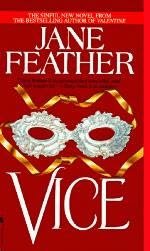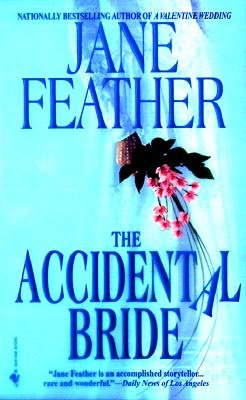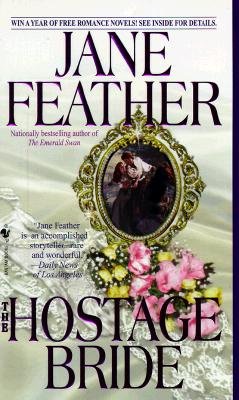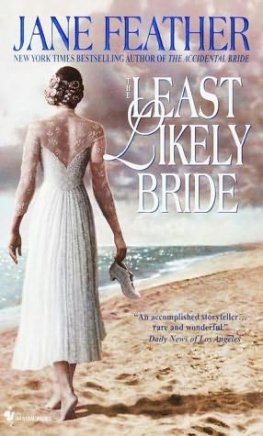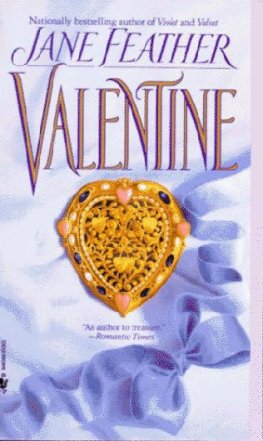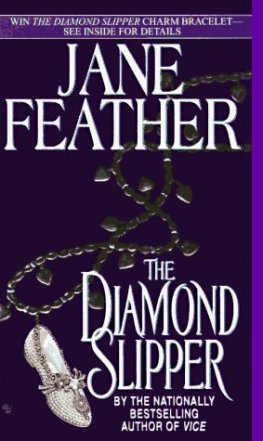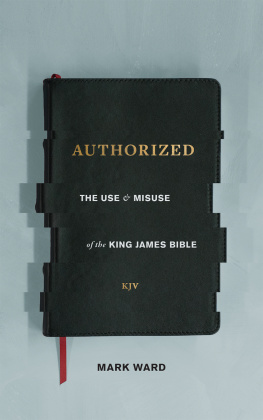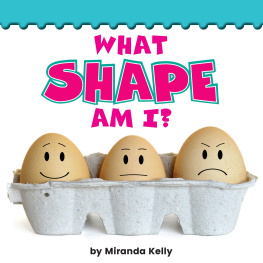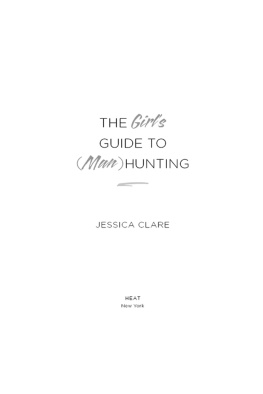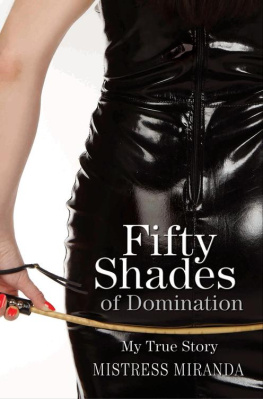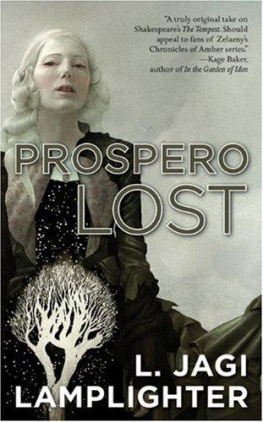The Emerald Swan by Jane Feather
Paris August 24 1572
The tocsin rang at midnight. The streets, hushed and empty, now filled with men, gathering quietly at first, as if for a moment awed by the enterprise that drew them from their houses, white crosses in their hats, harquebuses, swords, knives in their hands.
They moved through the narrow lanes and cobbled streets surrounding the grim dark citadel of the Louvre. A week before, the citadel had blazed with light, music pouring from the narrow barred windows, and crowds of drunken revelers had thronged the streets of the city celebrating the marriage of the French King Charles's sister Marguerite to the Huguenot King Henry of Navarre. A marriage that was intended to unite the Catholic and protestant factions in France.
But on this Saint Bartholomew's night, the marriage served as the bait to entrap and destroy the Huguenots who had arrived in their thousands in Paris to support their young king.
As the tocsin continued to peal, men moved down the streets, knocking on the doors that bore the white cross. The inhabitants slipped out to join them and the huge army of assassins grew, a great wave billowing and surging toward the mansions of the Protestant leaders.
The first shots, the first brilliant scarlet flares, the first long-drawn-out screams, were the signals for mayhem. The mob developed as many heads as a hydra, plunging through the city, breaking down doors to houses that didn't bear the white cross, hurling the inhabitants from windows and balconies to be torn to pieces by the screaming throng in the street and courtyards below.
The air reeked of blood and gunpowder; the sky was red with the flames of burning houses and the garish flares of the pitch torches seemingly disembodied, weaving their way through the narrow streets; the jubilant yells of a mob running down a half-naked bleeding fugitive were like the nightmare shrieks of pursuing devils.
The woman stood trembling, breathless, on the corner of a narrow fetid lane running up from the river. Her heart was beating so fast every dragging breath was an agony. Her bare feet were bleeding, cut by the jagged stones along the quay, and her thin cloak clung to her back, wet with sweat. Her hair hung limp around her white, terrified face, and she clutched her babies to her, one in each arm, their little faces buried against her shoulders to stifle their cries.
She looked wildly up the lane and saw the first flicker of the pursuing torches. The voices of the mob rose in a shrill shriek of exultation as they surged toward the river. With a sob of anguish, she began to run again, along the river, clutching the babies, who grew heavier with each step. She could hear the footsteps behind her, a thundering pounding of booted feet growing closer. Every breath was an agony and slowly, inexorably, the despair of resignation deadened her terror. She could not escape. Not even for her babies could she run faster. And the crowd behind her grew, augmented by others who joined the chase simply for the pleasure of it.
With a final gasp of despair, she turned and faced her pursuers, the babies still pressed to her breast. One of them wriggled, trying to raise her head. The other was still and quiet as always. Even at ten months, they were so different, these twin daughters.
She stood panting, a hart at bay, as the crowd with their mad glittering eyes surrounded her. Every face seemed filled with hatred, lips drawn back from bared teeth, eyes reddened with bloodlust. Their swords and knives dripped blood, their hands and clothes were smeared with it. And they moved so close to her she could smell their sweat and their wine-sour breath and their hatred.
"Abjure abjure" The chant was picked up and the words battered against her like living things. The mob pressed against her, their faces pushed into hers as they taunted her with a salvation that she knew in her heart they would deny her. They were not interested in a convert, they were interested in her blood.
"Abjure abjure"
"I will," she gasped, dropping to her knees. "Don't hurt my babies please, I will abjure for my babies. I will say the credo!' She began to babble the Latin words of the Catholic credo, her eyes raised heavenward so that she couldn't see the hateful faces of the men who would murder her.
The knife, already reddened with Huguenot blood, swiped across her throat even as she stammered to an end. The words were lost in a gurgle as a thin fine of blood marked the path of the knife. The line widened like parting lips. The woman fell forward to the cobbles. A baby's thin wail filled the sudden silence.
To the Louvre to the Louvre!" A great cry came over the rooftops and the mob with one thought turned and swept away, taking up the clarion call, "To the Louvre to the Louvre," like so many maddened sheep.
The black river flowed as sluggishly as the woman's congealing blood. Something moved beneath her. One of the babies wriggled, squiggled, wailed as she emerged from the suffocating warmth of her mother's dead body. With a curious kind of purpose the little creature set off on hands and toetips like a spider, creeping away from the dreadful smell of blood.
It took ten minutes before Francis found his wife. He broke from the lane, his face white in the sudden moonlight. "Elena!" he whispered as he fell to his knees beside the body. He snatched his wife against his breast, and then gave a great anguished cry that shivered the stillness as he saw the baby on the ground, gazing up at him with almost vacant eyes, her tiny rosebud mouth pursed on a wavering wail, her face streaked with her mother's blood.
"Sweet Jesus, have mercy," he murmured, gathering the infant up in the crook of one arm as he continued to hold her mother to his breast. He looked around, his eyes demented with grief. Where was his other daughter? Where was she? Had the murdering rabble spitted her on their knives, as they had done this night to babes all over the city? But if so, where was her body? Had they taken her?
Footsteps sounded behind him and he turned his head with a violent twist, still clinging to the child and his dead wife. His own people raced from the lane toward him, wild-eyed from their own desperate escape from the massacre.
One of the men reached down to take the child from the duke, who yielded her up wordlessly, bringing both arms around his wife, rocking her in soundless grief.
"Milord, we must take milady and the child," the man with the baby said in an urgent whisper. "They might come back. We can take shelter in the chatelet if we go quickly."
Francis allowed his wife to fall into his lap, her head resting on his knee. He closed her open eyes and gently lifted her hand. A gold pearl-encrusted bracelet of strange serpentine design encircled the slender wrist. A single emerald-studded charm swung from the delicate strands and his tears fell onto the perfect undulating shape of a swan. He unclasped the bracelet, his betrothal gift to Elena, and thrust it into his doublet against his heart, then he raised his wife in his arms and staggered to his feet with his burden.
The baby wailed, a long-drawn-out cry of hunger and dismay, and her bearer hoisted her up against his shoulder and turned to follow the man and his murdered wife as they vanished into the dark maw of the lane leading away from the river.
Dover England 1591
It was the most extraordinary likeness.
Gareth Harcourt pushed his way to the front of the crowd watching the troupe of performers who had set up their makeshift stage on the quay of Dover harbor.
Her eyes were the same cerulean blue, her complexion the same thick cream, and her hair was exactly the same shade of darkest brown, right down to the deep reddish glints caught by the sun. There the resemblance ended, however. For whereas Maude's dark hair hung in a cloud of curls teased daily from curling papers and tongs, the acrobat's crowning glory was cut in a short straight-fringed bob that owed more to a pudding basin than the more sophisticated tools of feminine coiffure.


